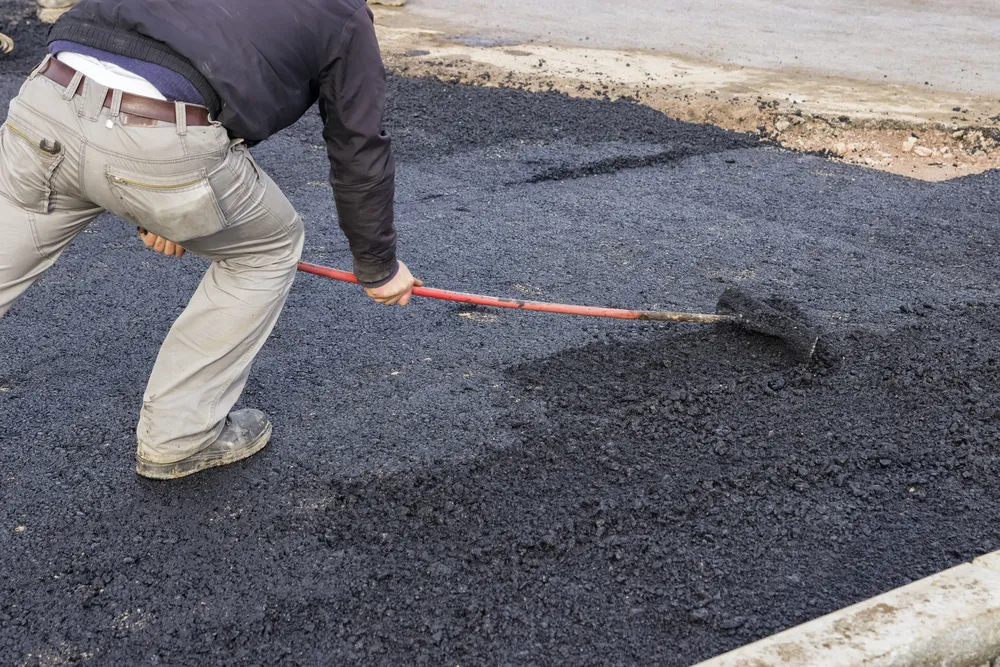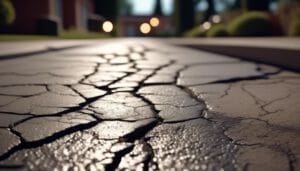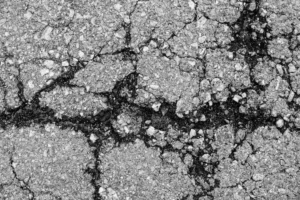Is your residential driveway looking tired and worn out? Do you want to boost your home’s curb appeal, increase its value, and enhance safety for your loved ones?
If you answer yes to any of them questions and your driveway is not badly damage. Then getting your driveway resurfaced is the prefect option for you.
Keep reading to discover the benefits of this cost-effective solution and learn why resurfacing your driveway is a smart investment in your home’s future.
What is Asphalt Resurfacing?
Asphalt resurfacing is the process of adding a new layer of asphalt to an existing driveway or road surface.
The process involves several steps, including inspecting and preparing the existing surface, repairing any cracks or potholes, and applying a new layer of asphalt. This new layer typically ranges from one to two inches in thickness, depending on the condition of the existing surface.
Resurfacing is an effective way to extend the life of an asphalt surface and can improve its appearance, smoothness, and durability.
It’s a more affordable option than replacing an entire asphalt surface and can help prevent further damage or deterioration. However, it’s important to note that resurfacing is not always the best solution for severely damaged or uneven surfaces, in which case replacement may be necessary.
Is It Better To Resurface or Replace an Asphalt Driveway?
Whether to resurface or replace an asphalt driveway depends on several factors, including the extent of damage, the age of the driveway, and the homeowner’s budget. Resurfacing is a more affordable and less disruptive option that involves adding a new layer of asphalt over the existing surface.
It’s best for driveways with minor cracks, potholes, and other surface damage. However, if the driveway has extensive damage, severe cracking, or an uneven foundation, replacement may be the better option. While it is more expensive, a new asphalt driveway provides a longer lifespan and a more durable surface.
Ultimately, it’s best to consult with a professional contractor to assess the condition of your driveway and determine the best course of action based on your specific needs and budget.
Why You Should Resurface Your Residential Driveway
There are several reasons why you should consider resurfacing your residential driveway. First and foremost, resurfacing can significantly improve your home’s curb appeal by removing unsightly cracks, potholes, and other blemishes from the surface.
A well-maintained driveway can also increase your property value and potentially result in higher resale prices. Resurfacing can also enhance safety for vehicles and pedestrians by creating a smooth surface that reduces the likelihood of accidents or injuries.
Additionally, resurfacing is a more cost-effective alternative to driveway replacement, as it provides similar results without requiring extensive excavation work.
If you’re experiencing issues such as cracks, potholes, or drainage problems, resurfacing may be the ideal solution to restore functionality and aesthetic appeal to your residential driveway.
Benefits of resurfacing your driveway
Resurfacing your driveway offers a range of benefits, including:
Improved curb appeal
A well-maintained driveway can significantly improve the overall look and feel of your property. Resurfacing can help eliminate cracks, potholes, and other unsightly blemishes that detract from your home’s visual appeal.
Increased property value
The condition of your driveway can impact the value of your property. A freshly resurfaced driveway can help increase the perceived value of your home, which may translate into higher resale prices.
Enhanced safety for vehicles and pedestrians
A damaged or uneven driveway can pose a serious safety hazard for both vehicles and pedestrians. Resurfacing can help create a smooth surface that reduces the likelihood of accidents or injuries.
Cost-effective compared to replacement
Replacing an entire driveway can be costly, time-consuming, and disruptive to your daily routine. Resurfacing provides a more affordable alternative that offers similar results without requiring extensive excavation work.
Signs that it’s time to resurface your driveway
If you’re unsure whether it’s time to resurface your driveway, here are some signs to look out for:
- Cracks and potholes: Over time, exposure to cold weather conditions and heavy use can cause cracks or potholes in your driveway.
- Drainage issues: If water doesn’t drain properly from your driveway after rain or snowfall, it could indicate underlying drainage problems.
- Fading or discoloration: UV exposure over time may cause fading or discoloration in certain areas of the surface.
- Uneven surface: An uneven surface with bumps or dips may pose tripping hazards for pedestrians or damage vehicle tires.
The process of resurfacing a driveway
The process of resurfacing a driveway typically involves several steps:
- Inspection and preparation: An asphalt contractor will inspect the existing surface for any structural damage and make necessary repairs before applying new material.
- Repairing cracks and potholes: Any existing cracks or potholes will be filled in with specialized filler material.
- Applying the new surface material: A fresh layer of asphalt or concrete will be applied over the existing surface using specialized equipment.
- Finishing touches: Once the new surface has been applied, contractors will add finishing touches like applying asphalt sealant or striping as needed.
How Much Does It Cost to Resurface a Driveway?
The cost of resurfacing an entire driveway can vary based on factors such as driveway size, the extent of repair needed, the type of material used, and location.
On average, homeowners can expect to pay between $2 and $8 per square foot, meaning a standard single-car driveway could average cost around $1,000 to $3,000, while a larger driveway could cost around $2,000 to $6,000.
To get a more accurate estimate, it’s recommended to obtain a quote from a reputable contractor in your area.
How Long Does It Take To Resurface Asphalt?
The time it takes to resurface asphalt pavement can depend on several factors, including the size of the area to be resurfaced and the extent of repair needed. However, on average, it typically takes between one and three days to resurface asphalt.
The process involves several steps, including inspecting and preparing the surface, repairing any cracks or potholes, applying the new fresh asphalt layer, and allowing time for it to cure. The curing process usually takes around 24 to 48 hours, during which time the driveway should not be driven on.
Factors such as extreme weather conditions and equipment availability can also affect the timeline for resurfacing asphalt. It’s best to consult with a professional asphalt contractor to get a more accurate estimate of the timeline for your specific project.
Can You Put New Asphalt Over Old Asphalt?
Yes, it’s possible to put new asphalt over old asphalt through a process called asphalt resurfacing. Resurfacing involves adding a new layer of asphalt to an existing driveway or road surface.
The process begins with inspecting and cleaning the existing surface to ensure it’s free of debris and other contaminants.
Any cracks or potholes are repaired, and a layer of adhesive is applied to help the new asphalt bond to the old surface.
Once the adhesive has set, a new layer of asphalt is applied to the surface. Asphalt pavement resurfacing is a more cost-effective option than removing and replacing the entire asphalt surface.
However, it’s important to note that asphalt resurfacing is not always the best solution for severely damaged or uneven surfaces, and a professional contractor should be consulted to determine the best course of action.
Choosing the right contractor for the job
Choosing a reliable contractor is essential when you’re considering resurfacing your residential driveway. Here are some tips on how to choose the right contractor:
- Research potential contractors: Look online for reputable contractors in your area who specialize in residential driveways.
- Ask for references and examples of past work: Request references from previous clients as well as photos showcasing their past work.
- Compare quotes: Get multiple quotes from different contractors so you have an idea about the pricing options available.
Conclusion
Resurfacing is an excellent way to restore functionality and aesthetic appeal to an aging residential driveway while also adding value to one’s property investment.
The benefits outweigh the costs incurred during asphalt repair jobs; improved curb appeal makes homes more attractive on the real estate market; increased safety measures protect drivers’ vehicles as well as pedestrians who traverse driveways frequently; cost-effective alternatives mean homeowners won’t break the bank on complete replacements.
If you’re considering resurfacing residential driveways, contact our team today!
Are you in need of asphalt driveway installation, repair, or resurfacing services?
Look no further than Nathan’s Paving! Our contracting company specializes in handling common driveway repair issues, such as alligator cracks, and providing detailed quotes for any asphalt repaving project.
Let us help you achieve beautiful curb appeal and a durable surface for your driveway.
Contact us today to get started on your asphalt resurfacing job!



